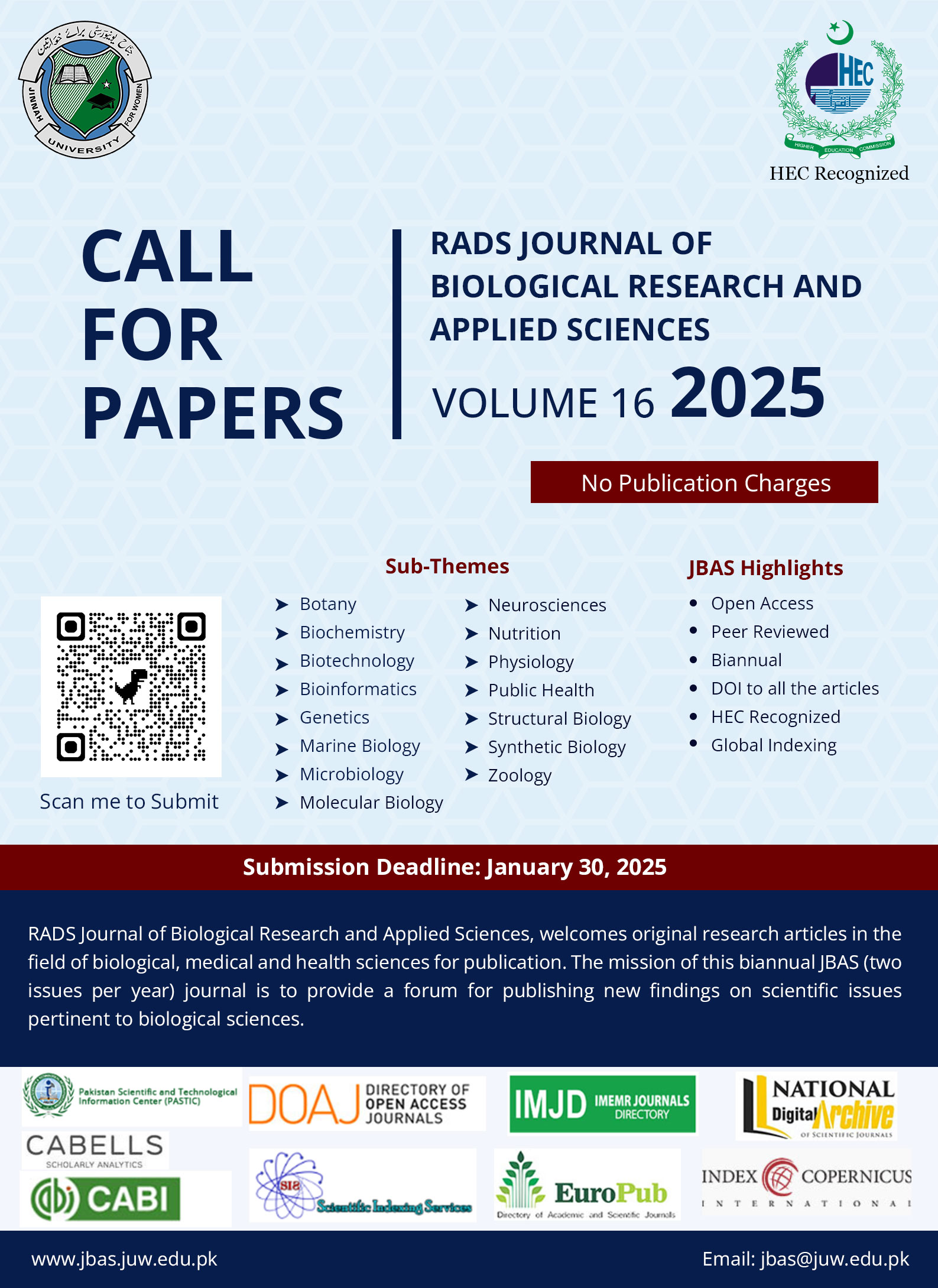An Exploratory Study of Contamination of Surgical Equipment’s in Hospital Setting
Keywords:
perioperative, Surgical site infection (SSI), sterilization, bioburdenAbstract
The research has been carried out on the microbial hazards by using contaminated surgical instruments. In the operating room medical devices that have contact with sterile body tissues or fluids are considered as dangerous surgical tools. These surgical tools should be sterile when used because any microbial contamination could result in disease transmission and would leads to high number of Surgical Site Infections (SSI). The aim of this study is to establish the possible presence of known bacterial pathogens on surgical instruments in hospital settings, and to evaluate their antibiotic susceptibility profile. For this purpose a comparative research was conducted; the 40 samples were collected from instruments at the start and end of the procedure with the sterile cotton swabs; from the Gynea department, Abbasi Shaheed Hospital. These samples were cultured on the selective and differential media and incubated at 37°C for 24hr. Next day, these samples were processed and identified in Microbiology laboratory as per standard microbiological techniques; including the microscopy, biochemical tests, enzymes test and other culture characterizations test. The isolated microorganisms include E.coli, Staph aureus, Staph. saprophyticus, Strep viridians, Strep. bovis, Bacillus subtilis, and Pseudomonas spp. These microorganism were isolated from both autoclaved and non-autoclaved pre and post-operative surgical instruments respectively. Antibiotic susceptibility test was carried out by Kirby Bauer Method. Meropenum found to be the most effective against E.coli, Gentamycin and Novobiocin shows activity against S.aureus, Erythromycin also give zone of inhibition against S.bovis, Vancomycin shows activity against S.viridans, where Cephalenin and Ampicillin were also found to be effective against S. saprophyticus. Surgical instruments should be regarded as a possible source of nosocomial infection s since bacteria from them can be carried from the hands of theatre personnel to the patient undergoing surgery or through re-dispersed bacteria from surfaces during surgery. Therefore surgical procedure to prevent cross contamination instruments are sterilized and decontaminated. There has been advance in Surgical Site Infection (SSI) control practices which involves improved operating room ventilation, sterilization methods, surgical methods and availability of antimicrobial prophylaxis.


















